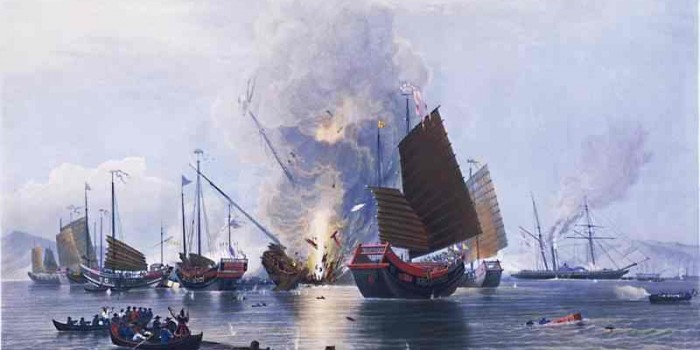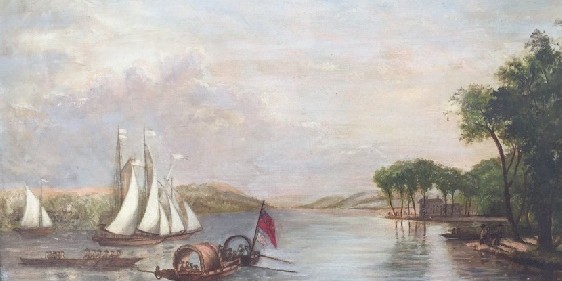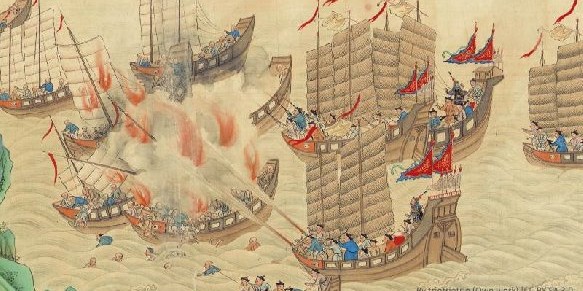Gold
You are here » History » Gold



![]()
This is a true and remarkable story about an extraordinary journey all the way from China to the Victorian Goldfields.
The story begins below the image. Please scroll down.
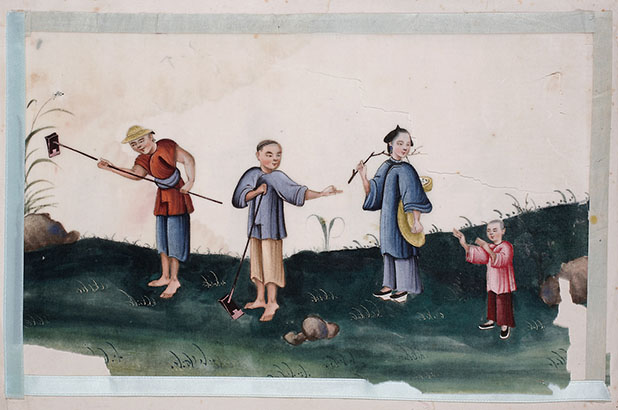
 Click play button for background music if you like. You may need to adjust the volume. Then keep scrolling down to read the story.
Click play button for background music if you like. You may need to adjust the volume. Then keep scrolling down to read the story.
Guandong Province, China 1856
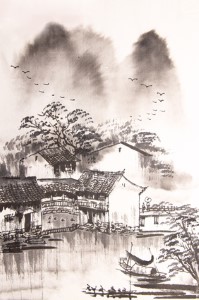
Drought, famine, rebellion, poverty and war had cast shadows over our village. Hunger robbed us of our health and sapped our energy.
Stirring rumours began circulating in the tea houses. Gold had been discovered in faraway places.
A lucky few had returned home, bringing prosperity to their families and honour to their villages.
Excitement and optimism swelled as a trickle of well-dressed visitors 1 confirmed the stories of the tea houses. Gold, it was said, could be plucked freely from the earth. Great wealth was to be made from Hsin Chin Shan or ‘New Gold Mountain’ in Victoria.
A flurry of hope rippled through the village. Plans commenced to send a group of young men to the gold fields. I was to be amongst them.
Tools of trade, equipment for survival and money would be required for the long journey. Everyone in the village pooled their resources.
Our elders would not permit our families to leave China, and so, like most of my friends, I was married shortly before our departure. The marriage would cement village ties and ensure that I would return, repay the loans and bring wealth and honour to my family. My new wife would live with my family in my absence, performing the tasks of a dutiful wife and daughter.
We had lived all of our lives in the village. Parting was a curious blend of sadness, hope and anticipation.
The Walk to Canton
We walked, quickly picking up a rhythmic, musical shuffle that gobbled up the miles.
By day, the calm, silvery sheen of the Pearl River soothed our fears.
By night the moon and stars choreographed the same familiar shapes and patterns that we had always known. In three days and nights, we arrived at the port of Canton.
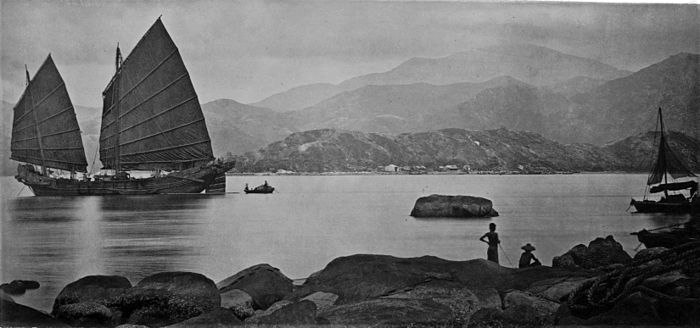
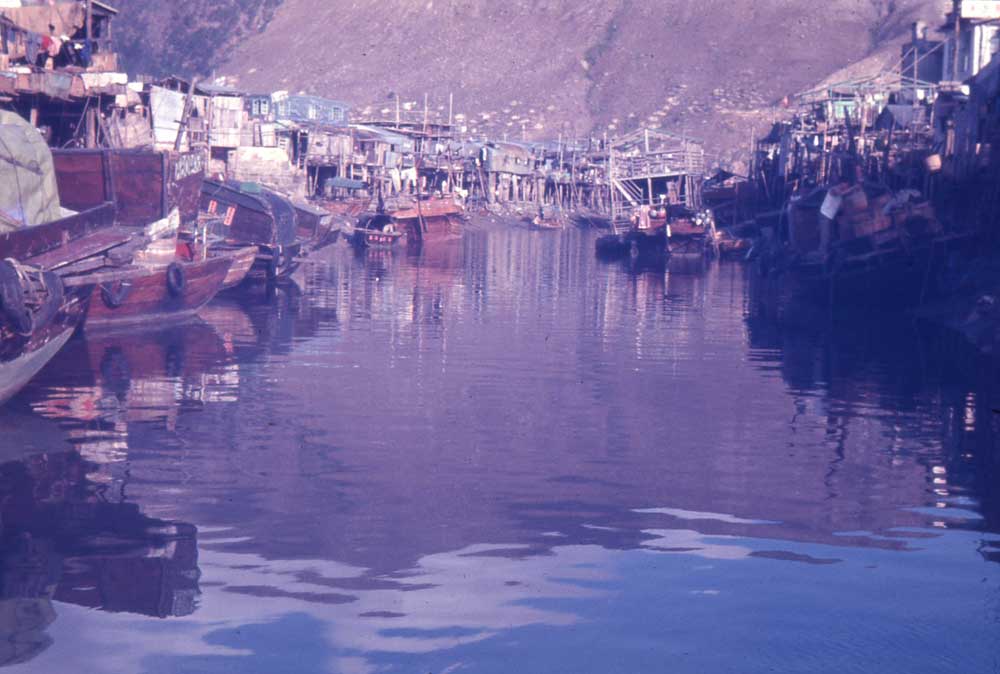
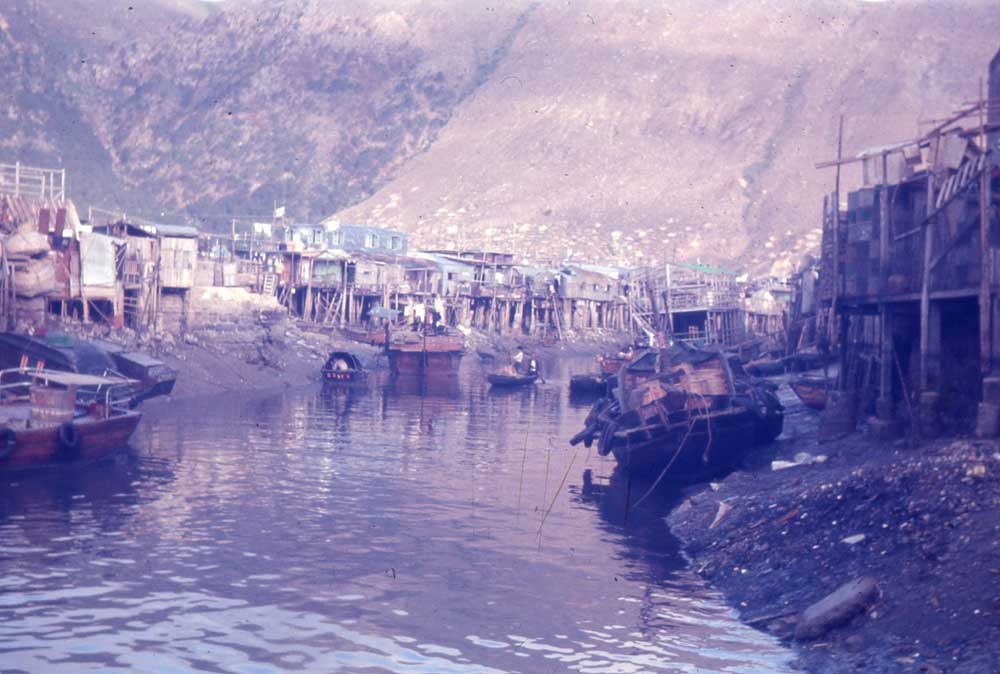
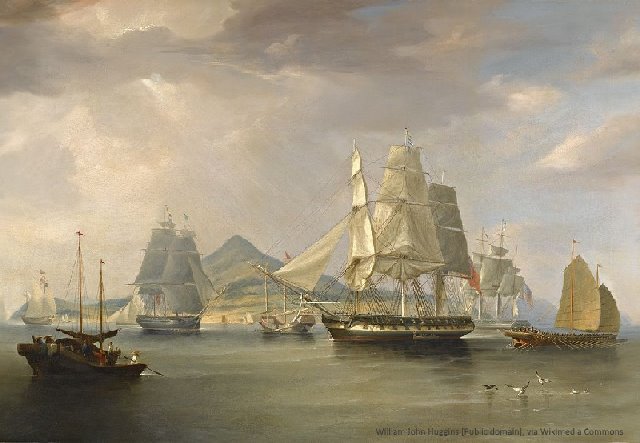
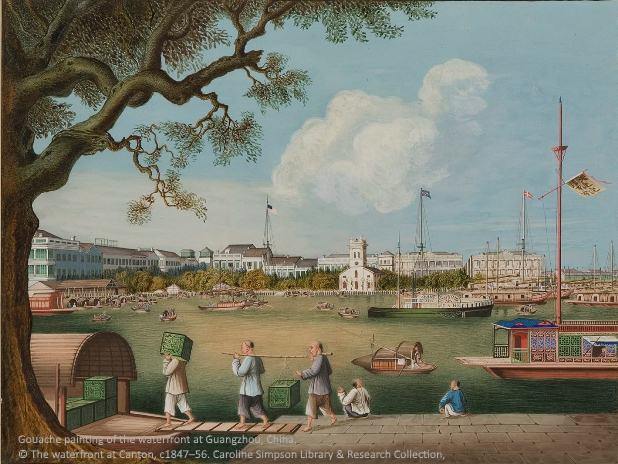
Canton to Hong Kong

The next stage of journey provided us with our first glimpse of our sea journey.
Hong Kong, Canton and the Pearl River Delta
Accompanied by an orchestra of clanking pots, pans, picks and tools of trade the ‘junk’ bobbed softly on the water as we boarded.
We were bound for Hong Kong, bundled together on a crowded boat with our worldly belongings around us.
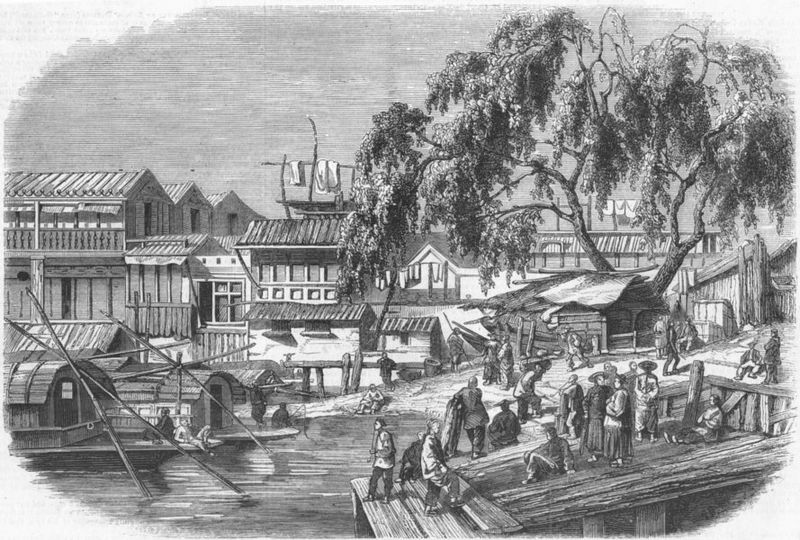
Hong Kong
Crude shelters provided squalid, temporary accommodation on the water’s fringe as we waited for the ship that would take us on the last leg of our ocean journey.
Other village groups waited too. Some of the men were darker and stronger in their appearance; their speech strange and unfamiliar.2
Less fortunate men were lured to the temptations of gambling and opium. Food remained scarce. Lives slipped away.
In twelve days our ship appeared in the harbour.
Hsin Chin Shan beckoned and our spirits were rekindled..
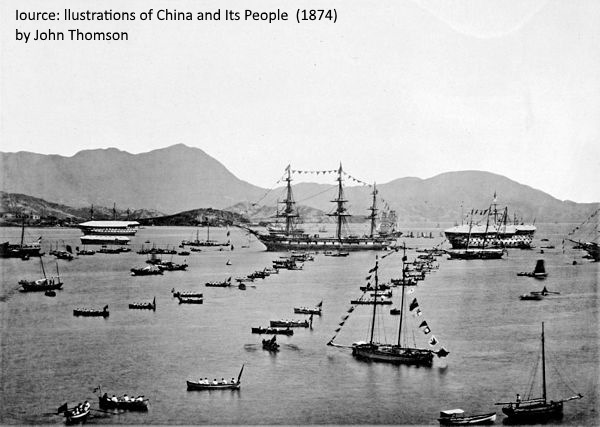
Hong Kong to Guichen Bay
XXX was overflowing with 260 Chinese passengers, a cargo of tea, and an English crew. By night we slept head to toe on narrow wooden shelves in the cargo hold. Twice, when the seas were wild and heaving and the ocean poured in through the bolted hatches, the ship rocked mercilessly as we clutched the cargo and prayed for our lives.
For most of the voyage, the sea swayed and rolled gently with silver capped waves all about us .
Our captain and crew were not unkind. We were permitted on deck by day and were provided with food and water rations. This was in stark contrast to the black stories we later heard on the goldfields.
Grey skies gave way to blue as the miles unfolded. Now and then, an albatross, wandering bird of the ocean, materialized from the vastness of the sky, circled, then vanished.

A burning tangerine sun slid slowly below the darkening sea as the night skies descended.  Familiar stars slipped away with the passing days as the XX held her course. A bright cluster of stars known to the sailors as the Southern Cross, guided xxx southwards, a good omen for a safe voyage.
Familiar stars slipped away with the passing days as the XX held her course. A bright cluster of stars known to the sailors as the Southern Cross, guided xxx southwards, a good omen for a safe voyage.
In forty-eight days we rounded Cape Leeuwin, south-westerly tip of Australia, land of our hopes and dreams. A stiff wind whipped up the mounting seas as the Indian Ocean collided angrily with the Great Southern Ocean.
Part 2 of this story to follow.


Learn more about the journey to the goldfields with videos and activities below.

 Gold Notes and Printable Activities
Gold Notes and Printable Activities
Place printable activities in here
 China to The Goldfields, related videos.
China to The Goldfields, related videos.
1. Documentary film
Jary Nemo (director), Lucinda Horrocks and Jary Nemo (producers), produced by Wind & Sky Productions, 2017, published by Culture Victoria.
Link to documentary: Many Roads, Chinese on the Goldfields
CC-BY-ND-NC 4.0 This film is licenced for use under a Creative Commons Attribution-NonCommercial-NoDerivatives 4.0
2. Bendigo’s Chinese History – Living Strories of the Goldfields
3. 19th Century Sailing
Sailing,19th-century style. A little preview of the skill and teamwork required when sailing a 19th-century ship. The ship is ‘The Enterprize’, a replica sailing ship with a small professional crew and many dedicated volunteers.
3. A Sea Shanty – South Australia

Fishermen’s Friends perform the traditional sea shanty South Australia.
Culture Victoria – Chinese Stories on the Goldfields
Hard Times in China
War, sickness and poverty, and even pirate ships were some of the challenges that confronted the Chinese as they undertook their journey.
